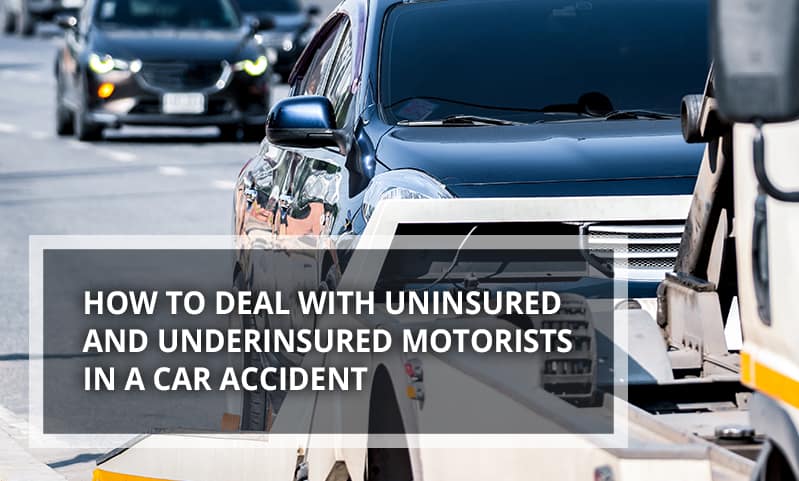These issues are very common in New York. The Empire State has one of the najwyższe odsetki of uninsured motorists in the country. Some people simply ignore the mandatory car insurance law while others fall behind on premium payments or otherwise default on their policies. In both cases, these drivers believe the money they save by not buying insurance outweighs the risk and penalties of getting caught.
New York also has one of the lowest auto insurance minimum requirements in the United States. Many drivers only have $25,000 property damage coverage and $50,000 personal injury coverage. Most new vehicles cost more than $25,000, while the average hospital stay costs more than $3,000 per day. At that rate, the $50k coverage doesn’t last long.
If the tortfeasor (negligent driver) was uninsured or underinsured, many car crash victims simply give up. They believe any judgment or settlement they obtain would be a worthless piece of paper. That belief is simply untrue. If the tortfeasor (negligent driver) doesn’t have enough insurance to cover all losses, a New York car accident lawyer has several enforcement options.
Individual Enforcement
Most individuals are judgment proof. Most personal property, including large targets like homes and retirement accounts, are exempt. In some cases, however, a lawyer can act as a debt collector. Available remedies include wage garnishment and lien placement.
New York law sharply limits wage garnishment in civil cases, usually to 10 percent of the tortfeasor’s gross wages. But 10 percent of the average monthly gross wage in New York, which is about $5,000, isn’t pocket change. Furthermore, many people prefer a lengthy and consistent income stream to a one-time fountain of compensation.
A property or credit lien might appear worthless; eventually, however, the tortfeasor tries to borrow money or sell property. At that point, the tortfeasor must take care of the lien, and the victim is in the driver’s seat for any financial negotiations.
Finally on this point, although they charge extremely high fees, private debt collectors will buy almost any judgment, and the world is full of “get cash now” note buyers.
Odpowiedzialność zastępcza
Frequently, a third party is financially responsible for damages in court, so the tortfeasor’s insurance coverage amount is irrelevant. Some examples include:
- Sklep z dramami: Alcohol causes about a third of the fatal car crashes in New York. Usually, a commercial alcohol provider, like a restaurant or bar, is financially responsible for these wrecks. Liability attaches if the establishment illegally sells alcohol to a person who later causes a wreck. Illegal sales include sales to obviously impaired people, unlicensed sales, and underage sales.
- Reaguj przełożonym: This theory usually applies in semi-truck, Uber, and other commercial vehicle collisions. Employers are liable for damages if their employees are negligent during the course and scope of employment. An employee is anyone an employer controls, even an unpaid volunteer. Any action that benefits an employer in any way is within the course and scope of employment.
- Niedbałe powierzenie: Owners are vicariously liable for damages if they knowingly allow incompetent operators to use their motor vehicles, and these incompetent operators cause wrecks. Evidence on this point includes no valid drivers’ license and a poor driving record that includes prior safety suspensions.
Third party liability adds another layer to an already complex case. An out-of-state holding company often owns the bar, car rental agency, or other business in question.
PIP Claims
New York law requires all drivers to carry personal injury protection insurance. This coverage usually applies in non-injury, property damage only “fender benders.”
PIP is also gap insurance if the responsible driver is uninsured or underinsured. A motor vehicle accident attorney cannot locate the tortfeasor of a hit-and-run and the victim can file a PIP claim with their own carrier.
Extra PIP premiums are usually low and the coverage limits are high. If a policyholder files a claim, it usually settles quickly and on victim-friendly terms. Insurance companies like to keep their paying customers happy.
Twoje opcje prawne
When insurance companies refuse to pay, our team gets to work. For a free consultation with an experienced attorney in New York, contact Napoli Shkolnik today.
